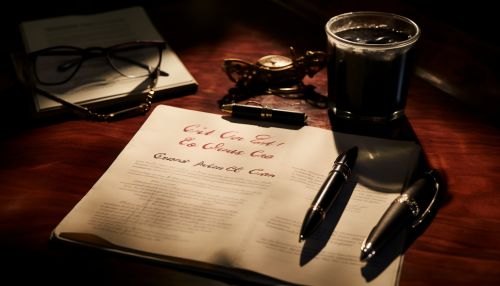Mafia
Origins and History
The Mafia, also known as Cosa Nostra, is a criminal syndicate that emerged in the mid-nineteenth century in Sicily, Italy. The Mafia is a loose association of criminal groups that share a common organizational structure and code of conduct, and whose core activities are protection racketeering, the arbitration of disputes between criminals, and the organizing and oversight of illegal agreements and transactions


The exact origins of the Mafia are still a matter of debate and are likely to remain obscure due to the secretive nature of the organization. However, it is generally agreed that the Mafia originated in the mid-nineteenth century during the period of Italian unification, or Risorgimento. During this time, Sicily was undergoing major social and economic changes, which included the abolition of feudalism, the weakening of the traditional rural elites, and the rapid expansion of the market economy.
Structure and Organization
The Mafia is not a single, unified organization, but rather a network of families or clans, each of which claims sovereignty over a territory, usually a town or village, and the surrounding countryside. Each family is led by a boss, or capofamiglia, who is assisted by an underboss and an advisor, or consigliere. The boss is the ultimate decision-maker and is responsible for the strategic direction of the family's activities. The underboss manages the day-to-day operations of the family, while the consigliere provides advice and mediation in disputes between members or between different families.
The members of a Mafia family are organized into a hierarchical structure, with the boss at the top, followed by the underboss, the consigliere, capos, soldiers, and associates. The capos, or captains, are in charge of a crew of soldiers, who are the basic operatives of the family, carrying out the criminal activities on the ground. The associates are not full members of the Mafia, but they work for the family and participate in its criminal activities.
The Mafia families are connected through a complex web of relationships and alliances, which are often cemented through marriages and godparent relationships. This network of relationships allows the Mafia to operate on a regional, national, and even international level, and to engage in a wide range of criminal activities, including drug trafficking, extortion, loan sharking, illegal gambling, prostitution, racketeering, and murder.
The Mafia operates according to a strict code of conduct, which includes rules about loyalty, obedience, silence, family, respect, and honor. This code, known as omertà, is enforced through a system of rituals, symbols, and ceremonies, which serve to bind the members of the Mafia together and to maintain discipline and order within the organization


Activities and Influence
The Mafia's main activity is the provision of protection, or "protection racketeering". This involves offering protection to businesses and individuals in exchange for a fee. The Mafia also engages in a wide range of other criminal activities, including drug trafficking, loan sharking, illegal gambling, and prostitution. In addition, the Mafia has been involved in a number of legitimate businesses, including construction, real estate, and waste management, often using these businesses as a cover for their illegal activities.
The Mafia has had a significant impact on Italian society and politics. Through its control of the economy and its influence over the political system, the Mafia has been able to shape the development of Sicily and other regions of Italy. The Mafia has also had a significant impact on the international criminal landscape, with its activities extending beyond Italy to the United States, Canada, and other countries.
Despite numerous efforts by the Italian government and law enforcement agencies to combat the Mafia, it remains a powerful and influential force in Italy and beyond. The Mafia's ability to adapt to changing social and economic conditions, its deep roots in Italian society, and its capacity for violence and intimidation have made it a formidable adversary for law enforcement.
